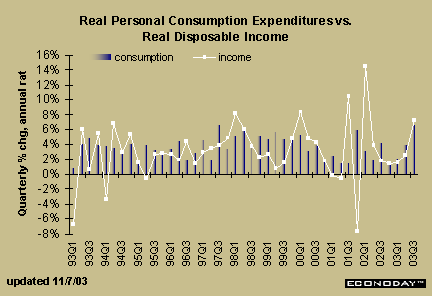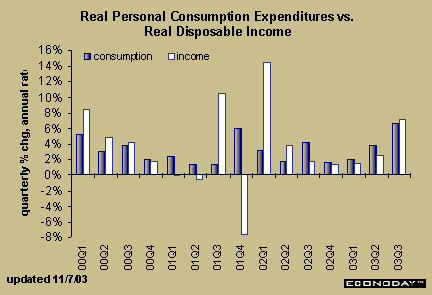
Long Term Perspective
Typically, consumers increase spending in direct proportion to gains in disposable income. Since 1996, spending has outpaced income, as consumers felt wealthier from stock market gains and housing appreciation. Notice how the gap widened in 1998 and 1999. It didn't narrow very much in 2000 even though the stock market headed south and consumer wealth stopping increasing exponentially! Income growth finally outpaced spending in 2001 and most of 2002.

Short Term Perspective
Consumer spending expanded at a healthy 6.6 percent rate, but grew more slowly than disposable income (7.2 percent) in the third quarter. The jump in disposable income stems from lower income tax payments. Durable goods consumption on motor vehicles and furniture helped boost total consumer spending in Q3.



Real GDP vs. Final Sales •
Real Consumer Spending vs. Real Income •
Debt Burden vs. Savings Rate

Business Fixed Investment vs. Net Cash Flow
•
New Orders •
Housing Starts vs. Mortgage Rates

Merchandise Exports vs. Trade Weighted Dollar •
Merchandise Imports vs. Trade Weighted Dollar
|